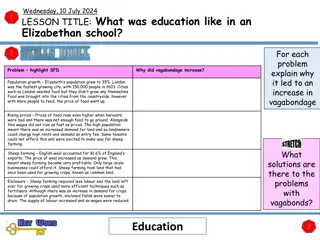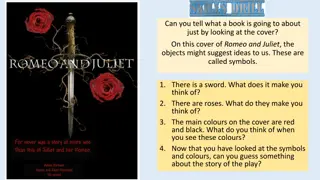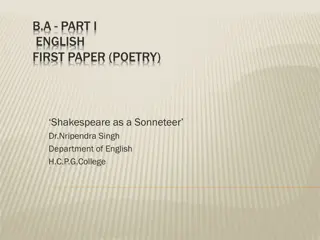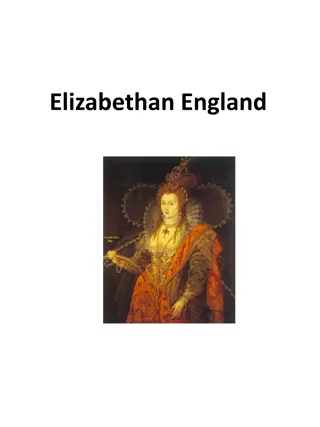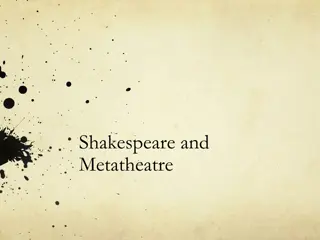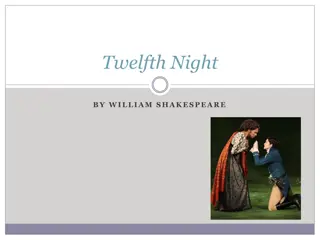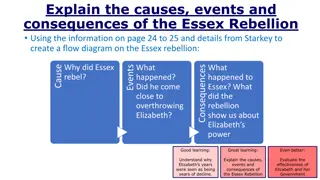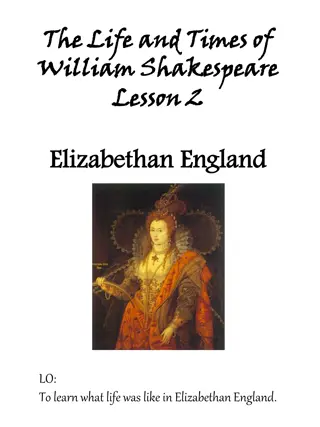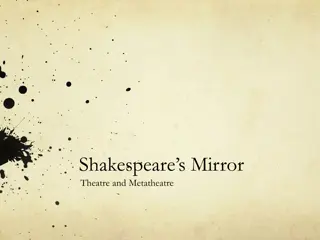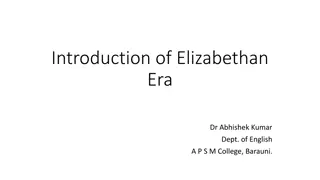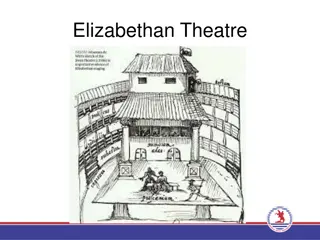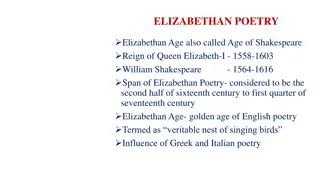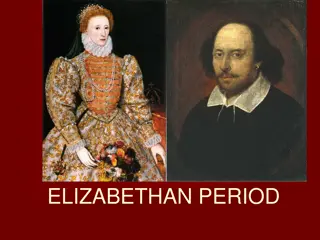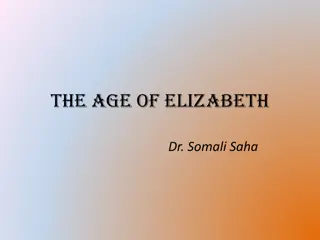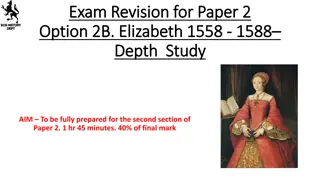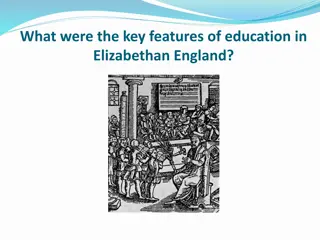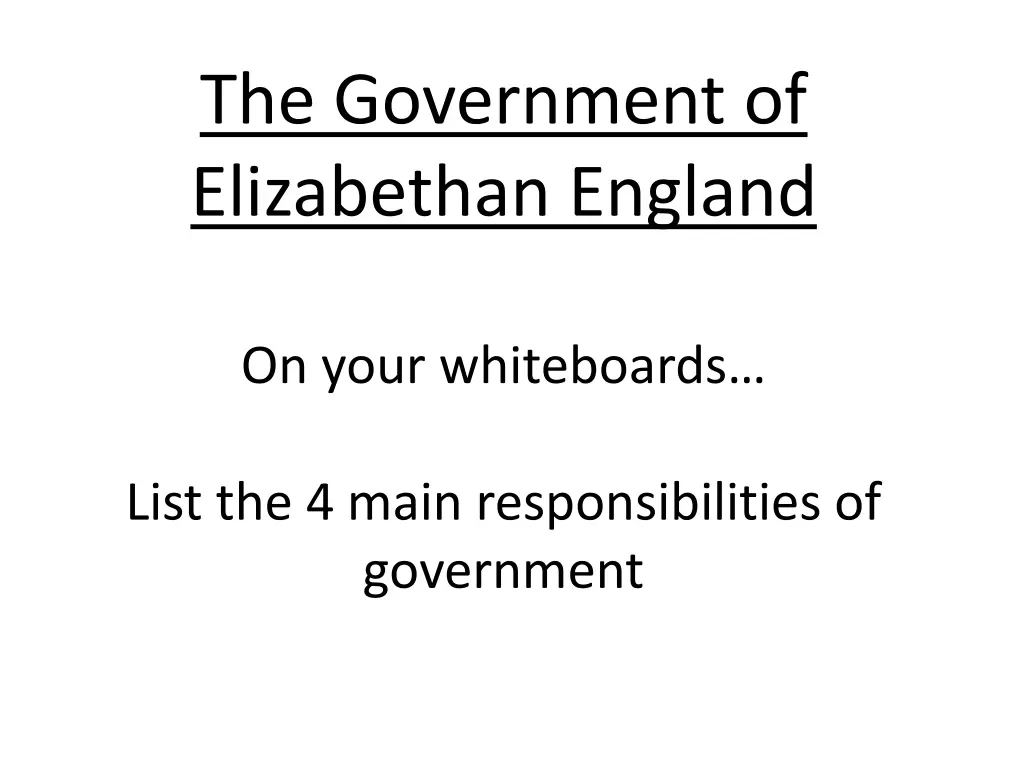
Responsibilities of Government in Elizabethan England
Discover the 4 main responsibilities of the government in Elizabethan England, including maintaining law and order, defending against foreign threats, promoting the well-being of the people, and raising funds for governmental tasks. Learn about the structure of government, roles of the Privy Council, and the functioning of local and regional government during this historical period.
Download Presentation

Please find below an Image/Link to download the presentation.
The content on the website is provided AS IS for your information and personal use only. It may not be sold, licensed, or shared on other websites without obtaining consent from the author. If you encounter any issues during the download, it is possible that the publisher has removed the file from their server.
You are allowed to download the files provided on this website for personal or commercial use, subject to the condition that they are used lawfully. All files are the property of their respective owners.
The content on the website is provided AS IS for your information and personal use only. It may not be sold, licensed, or shared on other websites without obtaining consent from the author.
E N D
Presentation Transcript
The Government of Elizabethan England On your whiteboards List the 4 main responsibilities of government
The Government of Elizabethan England Tasks of the Government To keep law and order throughout the realm To defend England from foreign foes To take some interest in the well-being of the people To raise money to carry out its tasks.
An Organic State Crown Governing Class Depended upon the Governing Class (the political nation of peers and gentry) to enforce its policies Depended upon the Crown for social and economic advancement. Serving the crown was the road to power and profit. As the body of man is knit and kept together by the sinews, so is every commonwealth kept in order by obedience. But as if the sinews be too much racked and stretched out or too much shrinked together, it breedeth marvellous pains and deformities in a man s body; so if obedience be too much or too little in a commonwealth it causeth much evil and disorder Bishop Ponet 1556
The Privy Council Councillors were directly responsible to the Queen. Political Parties did not exist, so PC could be deeply divided. Advise the Queen about policy Three most important departments Secretary close contact with Queen Chancery royal grants, treaties & appointments Exchequer kept records of royal income and expenditure & what was owed to the crown.
Local and Regional Govt Elizabeth s family, the Tudors, inherited system of local government that had been established in the last 15th C. and did little to change it. Sheriffs organised the county courts, supervised the jail, called the posse to put down riots, conduct parliamentary elections, a thankless job for one year. Justice of the Peace - many in each county, supervised lower officials, administered poor relief, local magistrates, their duties & powers increased over time, being a JP was a mark of prestige. Lord Lieutenant only addition to administration at the top, a peer, responsible for local milita.
The Law . E E L C J L . . 16th Century England J Modern Parliament
Prerogative Courts Common Law Courts Chancery Court of the Queen s Bench More flexible than common law courts, tried to apply principals of common sense and fairness. Worked on written rather than spoken evidence. Concerned with matters involving the monarch, evolved into dealing with criminal cases and breaches of the peace Court of Common Pleas Star Chamber Civil suits which did not involve criminal charges The Privy Council sitting as a court. Cases that threatened law and order. Developed a reputation for a cruel overbearing type of justice. It could deal effectively with overmighty subjects. Exchequer Financial cases especially those involving revenue owed to the Crown.
Finance, Favour & Faction Crown Finances Custom Duties rarely increased, sold or given as favours, smuggling & bribes. Crown Land leased or sold, selling reduced future income. Feudal Dues land held by nobles in return for military service and monies, entry fine for heirs to retain land.
Patrons Clients QUEEN Contact men Usually servants of the Patron
Favour (Patronage) Royal Rewards Offices Lord Chancellor, Lord Treasurer, Stewarts of Royal Parks, and for suitably qualified men positions in the Church and Judiciary. Titles Peers or Lords (Duke, Marquis, Earl, Viscount, Baron), Archbishops / Bishops, Knights. Benefits Gifts of crown land at low rent, Pensions & Grants, Monopolies (rights to trade).
Parliament Parliament and Government were two different things in early modern England - & they still are today. By the time of Elizabeth I s reign, parliament had developed into an institution representing lords (the nobility & bishops) and commoners. It was designed by English monarchs to assist them with governing the country In the 16th and 17th centuries parliament was an important but irregular aid to government. When it meet and for how long was decided by the monarch.
Monarch Appointed Lords Spiritual (Bishops) The Political Nation The Governing Class Lords Temporal (Peers) House of Lords Patronage Links Gentry Knights of the shire Burgesses of the Towns House of Commons Elected
Elizabeth in effect added the strength of Parliament to her own. She could: Summon Parliament when she needed it. Prorogue or dissolve Parliament when she wished Veto any parliament bill (Elizabeth vetoed over 60 bills in her reign) Dispense with or suspend any statute or Act of Parliament. Elizabeth called only ten Parliaments in her 44 year reign and there were 13 parliamentary sessions. Each parliament had one session often lasting only a few weeks except for: the 1563 67 Parliament which had two sessions. the 1572 81 Parliament which had three sessions.
MPs Elizabeth reserved the right to tell MPs what they could and could not discuss. She made a sharp distinction between matters of Commonwealth and matters of State . Matters of Commonwealth = local affairs & non prerogative economic matters. These the commons could freely discuss. Matters of State = the Queens marriage, succession, Religion and Royal supremacy, conduct of Foreign policy, administration and regulation of trade. Not to be discussed unless invited. Elizabeth stood firmly on her prerogative, especially on issues concerning religion and the succession. Though she granted freedom of speech to her first Parliament, she was quick to scold Commons for the the very great presumption of petitioning her to marry.
The Historiography of Elizabethan Parliaments Views of the history and importance of 16thC Parliaments have changed very much with recent research and analysis. The two main views are summarized as such: The old view (Traditionalists) (Neale, Nofenstein) The House of Commons increased its powers during the 16thC while those of the House of Lords diminished. Commons increasingly challenged the authority of the Crown. The new view (Revisionist) (Elton, Haigh, Jones) The House of Commons did not increase its powers in the 16thC and most MPs had no wish to challenge the Crown. The House of Lords did not diminish its importance.


